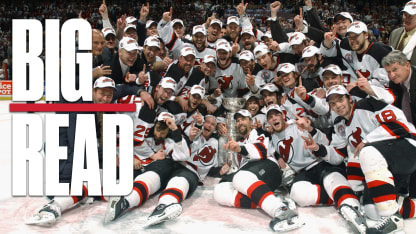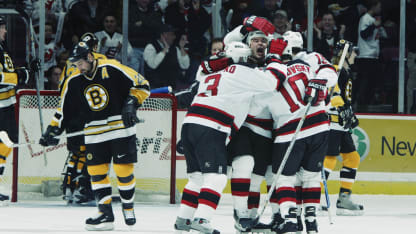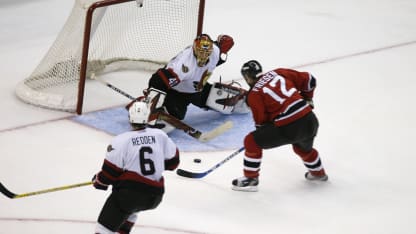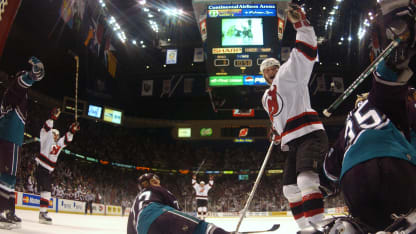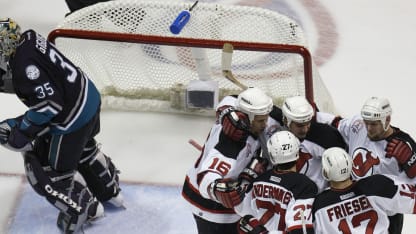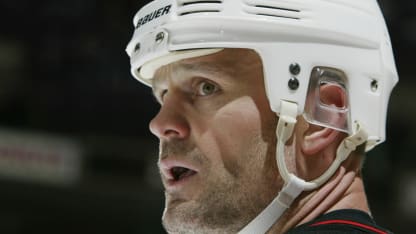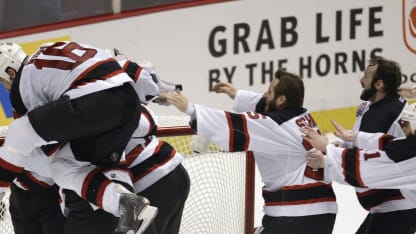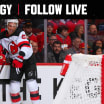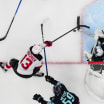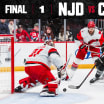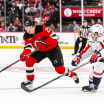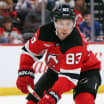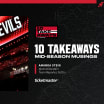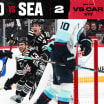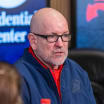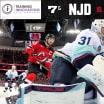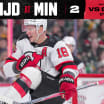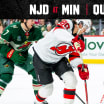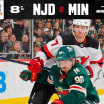Everybody, so it seems, has a Pat Burns story from the 2003 playoff run. And perhaps none quite as dramatic as Ken Daneyko.
The journey this time around, to his third Stanley Cup, was different for the man accurately named Mr. Devil.
His role this time around was limited to the point where he spent more games watching than he did playing. Daneyko was at the end of his career.
DANEYKO: Him and I almost killed each other a few times during the playoffs, as my role was diminishing. You're still a competitor. Man, did we battle. I don't get in the Final, I know I'm in and out, and I just want to win now. I mean, there's guys like (Turner Stevenson) and a bunch of guys like (Mike Rupp) and (Brian Gionta) have never won a Cup, even though they're young, it's still you may only get one opportunity. So I just want to win but you're frustrated. So when we fly back after Game 6 from Anaheim, I'm already resigned to the fact that, you've been part of it, you've had a long career, let's just win the Cup. (Burns) takes me aside as we go to the hotel, pulls me out as we're ready to go in and says, 'You're in tomorrow tonight, and don't tell anybody.' Now I'm shocked. I'm like a rookie. I'm like a little kid. Now I'm calling up my buddy, calling my family saying this guy's nuts, he's whacked, because I think he's making the wrong decision, he really is. I hadn't played in two weeks. I just didn't want to screw it up either. That's how I felt.
Daneyko also remembers that captain Scott Stevens played a part as well.
DANEYKO: When (Burns) told me I was going to play and not to tell anyone, he walked away from me. Well (Scott Stevens) was a part of that because apparently he went to Scotty and said 'What do you think of putting Dano in, will it give us a little lift for Game 7?' So, thank you for supporting that decision, Scotty. Scotty gave it the OK.
STEVENS: I didn't realize, I don't think that you hadn't played in that series yet. I mean, it was a no-brainer for me, it was a no-brainer for our teammates to have you in the lineup. You know, you're very important to our team and we knew what you bring to the table. You're the guy that plays hard, makes the right plays and simple and that's what we needed. We needed a guy who was steady back there and making the simple play, and add some physicality. That's what you brought, so I wasn't worried about the way you were going to perform. We know you're a big game player and I know our teammates wanted you in the lineup.
Daneyko, of course, did not 'screw it up' as he was afraid he might do. In fact, Daneyko playing his first game of the 2003 Final, at home in front of his home crowd would provide one of the great moments of the playoff run.
"One minute left to go, clock running. Marty Brodeur, trying to become just the third goaltender to pitch a shutout here in a Game 7 of the Stanley Cup Final. And the Devils that close to their third Stanley Cup. Rucchin a shot, had it blocked, played by Brylin."
- Gary Thorne, ESPN
"And you notice Pat Burns has Ken Daneyko out on the ice for this last shift."
- Bill Clement, ESPN
"The Devil who has been here for all three of the Stanley Cup wins. He's on the ice to end this game. He's playing in his first game of this Final series."
- Gary Thorne, ESPN
The crowd went wild.
SCHWAB: One thing I remember from watching that, I think just from the fan perspective and the atmosphere that it brought every time you stepped on the ice, the crowd was chanting Dano! Dano! It gave the team a lift. But watching Dano sprint out on the ice and sprint off the ice quicker than he was going on the ice, you knew you were getting out there and getting the puck in there.
DANEYKO: I was going to tell the fans to be quiet, Schwaby. They're making me more nervous! I felt like it was my first game, but I was 39-years-old, an old fart, just happy to be part of Game 7.
COLIN WHITE: I'd like to say something, boys. I remember Dano was put out the last minute of the game. We were all on the bench going nuts and nobody wanted Marty to have his shutout ruined. And Dano was skating around with no stick for like 35 seconds, just scrambling out there.
DANEYKO: You're right Schwaby, I was going to make sure I got (the puck) out and make the right play. I didn't want to be the one that made the one bad pass, or the play that would cost us. I don't think I could have lived it down. And you're right, every time I did touch the puck, the fans went nuts. I was like please temper it down a little bit here. I'm getting nervous out there.

